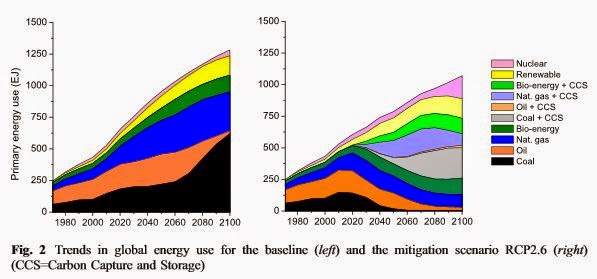 |
| The Mandelbrot set |
Chaos Theory
What can this beautiful fractal pattern possibly have to do with politics? We've become so familiar with the stunning images discovered in the Mandelbrot set that we forget that the maths around fractals is only a few decades old. It is linked to chaos theory and the logistic difference equation used by biologists to describe how populations change from generation to generation. So this is the maths of natural ecological systems. It is also the maths of any complex dynamic system, such as our economy.Boom and Bust
What have markets and ecosystems got in common? They may seem poles apart, but they are both systems prone to boom and bust. In nature this is most apparent in ecologies with low biodiversity. So the lemmings in the Arctic have population booms that are so huge they are alleged to throw themselves off cliffs. What actually happens is a delayed boom of lemming predators that nearly wipes lemmings out next season. This boom and bust is happening throughout the natural world, but where there is a more diverse ecology the ups and downs are gentle. This is because there are far more interactions between the different species. Organic gardening relies on this to keep the aphids in check with lots of different natural predators. This is also why the Green Party is in favour of an economy of lots of small enterprises rather than large. It was no surprise that our banking system, dominated by a few massive businesses, was so vulnerable. This is why the banks have to be split into smaller units with increased diversity. It's safer that way. |
| Lorenz attractor diagram |
The Problem of Instability
The butterfly effect, part of chaos theory, and famous for how the flapping of a butterfly's wings in one part of the world can set off a hurricane elsewhere, is aptly linked to this Lorenz attractor diagram that looks so like a butterfly. The dangerous thing about this particular butterfly, and the point of the hurricane story, is that chaos theory shows just how vulnerable many of our systems are to seemingly small changes that can push us over various tipping points.Tipping points are frequently mentioned with climate change, but it is also true for the ecology which supports us. There was another recent story about the dinosaurs being specially vulnerable to the meteor strike that wiped them out. This was because dinosaur ecological diversity was low and they could be more easily be tipped into extinction.
Green Intervention
So the reason for taking up green politics is that we are in danger. Because of human activity we have the dangerous stresses of climate change and world wide pollution at the same time as our decreasing biodiversity makes our whole ecology most vulnerable. As human beings we have intelligence, the ability to predict future problems, and plan how to stop them. I can't just sit back and let the natural boom bust cycle destroy the world I love. I am human. I can choose, and I choose to make a difference.









